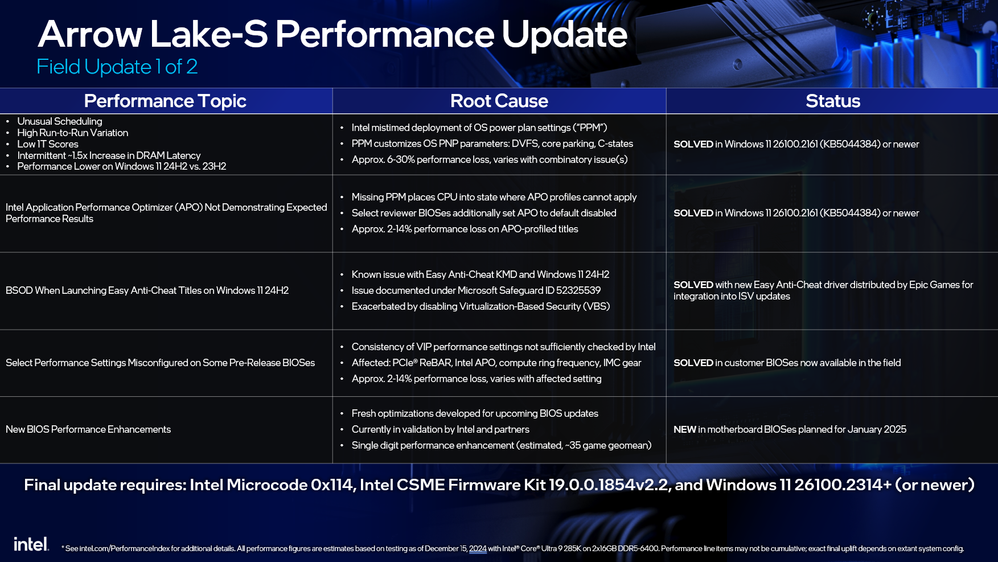Intel’s Core Ultra 200 gaming performance could rise 25% after patch
Intel appears to have finally, at long last, put its Core Ultra 200 performance debacle to rest. And if you apply the appropriate software updates and BIOS fixes, the performance impact should be pretty significant.
At CES, Intel concluded its months-long effort to solve the complex issues that caused the desktop Core Ultra 200 processors (codenamed “Arrow Lake-S”) to demonstrate lower performance than expected. In December, Intel put out the first half of a report which concluded that there were numerous reasons for the lower performance, from performance power plans to anti-cheat settings and more.
The fixes involved updating Windows 11 to build 26100.2314 and higher, as well as to check with your PC’s system builder or motherboard manufacturer and ensure that you have the latest firmware. Intel originally promised that a second, small firmware update would be provided by CES, so applying the latest firmware should solve those issues.
At CES, Intel announced some additional Core Ultra 200 desktop chips as well as two new chipsets for desktop Arrow Lake PCs.

Remember, Intel says the performance of the Intel 9 285K suffered as a result of these glitches. But by how much?
According to Intel, the difference between an unpatched system and one that had applied all the mitigations could demonstrate significant improvements, especially in some games. In Cyberpunk: 2077, for example, the difference could be as much as 26 percent!
Performance in Far Cry 6 could rise by 16 percent on a patched system, while synthetic benchmarks could see even higher gains.
 Source: Mark Hachman / IDG
Source: Mark Hachman / IDGMark Hachman / IDG
Intel also launched the Arrow Lake-based Core H and Core HX gaming laptop CPUs at CES. (Intel originally said that its Arrow Lake chips were not affected.)
We also asked Intel vice president Josh Newman what effects the investigation into Arrow Lake performance would have on Intel’s latest mobile Core H and Core HX. You can see his answers in the video below.
